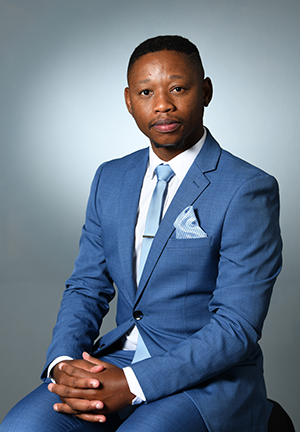News & Events
The paradox of LGBTQIA+ rights in South Africa
Writing in the special Human Rights Day issue of Business Day, published on 21 March 2025, Professor Cameron Modisane, Deputy Executive Dean of Unisa’s College of Accounting Sciences, argues that while South Africa’s legal framework protects LGBTQIA+ individuals, their lived experiences reveal that much more needs to be done.

Prof Cameron Modisane, Deputy Executive Dean of Unisa’s College of Accounting Sciences
The lesbian, gay, bisexual, transgender, queer/questioning, intersex and asexual (LGBTQIA+) community in South Africa continues to be afforded legal protection under the Constitution, which stands as a progressive milestone globally. South Africa’s Constitution is the first in the world to expressly prohibit unfair discrimination based on sexual orientation, thereby ensuring equality for the LGBTQIA+ population. Despite this constitutional safeguard, individuals within this community continue to face daily struggles.
Section 9(3) of the South African Constitution firmly establishes the principle that discrimination on the grounds of sexual orientation is unconstitutional. It articulates that “everyone is equal before the law and has the right to equal protection and benefit of the law”. The provision further asserts that the state may not discriminate unfairly, either directly or indirectly, on various rounds, including race, gender, sex, pregnancy, marital status, ethnic or social origin, colour, sexual orientation, age, disability, religion, conscience, belief, culture, language and birth.
THE REALITY
While the legal framework in South Africa offers protection to LGBTQIA+ individuals, their lived experiences on the ground remain starkly different. Within the broader African context, the lifestyles of LGBTQIA+ individuals are often perceived as unnatural and morally inferior, a view reinforced by religious communities, societal norms, family structures and, at times, workplaces.
Discrimination against LGBTQIA+ individuals is widespread with numerous African nations enacting laws that criminalise same-sex relationships. As of recent reports, 33 out of 55 African countries impose legal penalties, including imprisonment, on individuals engaged in same-sex relationships.
THE FALLOUT
The political climate in Africa has also seen a resurgence in antigay rhetoric and legislative actions, undermining the significant progress made in combating the HIV epidemic. Such actions threaten public health and individual wellbeing, particularly in countries with high HIV burdens.
Antigay laws correlate with increased HIV rates, particularly among men who have sex with men. These developments have profound implications for public health interventions, including the distribution of life-saving treatments such as antiretrovirals, pre-exposure prophylaxis and post-exposure prophylaxis.
The interruption of funding from international agencies, such as USAID, which previously supported HIV programmes catering to LGBTQIA+ populations, further exacerbates the issue. These funding halts hinder the continuation of critical health services. Consequently, the responsibility now falls upon the South African government and society to step in and sustain these vital health programmes that are essential to the wellbeing of LGBTQIA+ individuals.
Religious communities, particularly conservative factions, also contribute to the marginalisation of LGBTQIA+ persons. On many occasions, religious fundamentalists equate the sexual orientation and lifestyles of LGBTQIA+ individuals with other forms of sin such as murder, theft and adultery. This comparison reflects the broader societal condemnation faced by LGBTQIA+ individuals, who are subjected to violence, including “corrective rapes,” hate crimes and various forms of physical and psychological abuse. These acts are not only egregious violations of human rights, but also infringe upon the fundamental right to live free from discrimination based on sexual orientation.
SAFEGUARDING THE RIGHTS
The socioeconomic marginalisation of LGBTQIA+ individuals remains pervasive with members of this community routinely denied equal economic opportunities, access to healthcare and social inclusion. This widespread discrimination extends across various societal spheres, including family structures, workplaces and social environments. The rights of LGBTQIA+ persons must be safeguarded to ensure their access to healthcare, employment and other essential services is free from victimisation and oppression.
To address these ongoing challenges, it is essential that influential leaders – within South Africa and globally – take a firm stance against the discrimination of individuals based on sexual orientation. Support for LGBTQIA+ advocacy organisations is critical as these groups continue to provide essential services, raise awareness and give voice to those whose rights are often overlooked. Only through continued advocacy and support can meaningful change be achieved, ensuring that LGBTQIA+ individuals are not only protected by law, but also afforded the dignity, respect and equality they deserve in all facets of life.
Publish date: 2025-04-01 00:00:00.0

